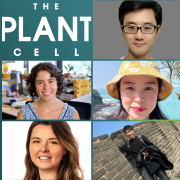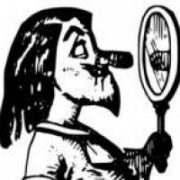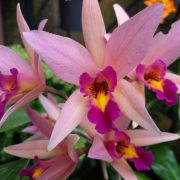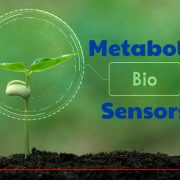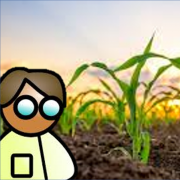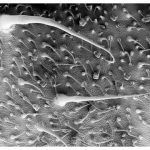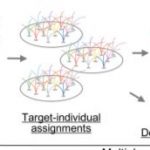Informational interview: Dr. Mary Williams, working for ASPB
By Xiang Li, ASPB Conviron Scholar
Mary William is a developer of Teaching Tools in Plant Biology and a Features Editor of the journals The Plant Celland Plant Physiology. After obtaining her Ph.D. at Rockefeller University and doing a postdoc at Berkeley, she spent 14 years as a Biology Professor at Harvey Mudd College in Claremont, California. In 2009, she started working at the American Society of Plant Biologists (ASPB). We talked about her career paths, her works at ASPB, the skills and challenges for the work and the experience of working at home.
I also transcribed most interview (more interesting explanations in the video!). The interview was delightful and enjoyable. I was impressed by her enthusiasm for the work she is working on. I learnt from Mary about finding something you like to do, always helping others and making contributions to the society. The video and the transcription are long, I hope you enjoy watch/read it. It will be worth it. There is a bonus at the end of the transcription (not in the video), tips about working at home!
1. Previously you were a Biology professor at Harvey Mudd College, and then you chose to work at ASPB, why did you make this change?
Being able to work on something I always want to do and help people at the same time.
I was working with ASPB while I was a professor, I was one of the volunteers, I was the chair of the ASPB Education Committee. I am always very interested in finding ways to help people teach better and communicate about the plant science better. I came to Scotland for my sabbatical in 2008 and I decided to stay in Scotland and get married to a Scottish man. The Plant Cell Editor-in-Chief told me earlier that she was interested in developing Teaching Tools in Plant Biology. I thought, “I can do that”. They hired me to initially develop teaching tools for plant biology in 2009.
When I thought about changing job, I made a list. Things I liked about my current job and things I didn’t like. For example, because I am a woman and a full professor, they told me when you come back from your sabbatical, you either have to be a department chair, or an assistant dean. I don’t want to be administrator; I want to teach and do research. I always wanted to help people in the developing countries. In the U.S. first of all, there are as much as interest in plant science and agriculture, because people are so well fed. There are not so many resources for teaching in the developing countries where people are interested in. The idea of using the internet to help spread good teaching was always back in my mind. It was really a great opportunity for me when I talked with the editor about this job. That is kind of what I would like to do.
2. At first you only work on developing Teaching Tools, and now your job is different. What do you do for ASPB?
I enjoy talking with students and am happy to pass on my knowledge to other people.
When I first started at ASPB, I was working full time on Teaching Tools and I wrote the first 30 articles. Then about 5 years ago, ASPB started to develop the idea of making an online community. It is a difficult thing to invent something new. Because I am a scientist while most staff at ASPB, studied business, they need a scientist get involved. I can help them to see what scientists need, they need opportunities, they need resources. About 4 or 5 years ago, my job changed so half time I do Plantae and half time I do journals, both The Plant Cell and Plant Physiology. My job has changed a lot, but I get to do the thing I really enjoy, which is very nice. Now, most of my time I am talking to postdocs and graduate students and helping them edit their articles. I didn’t realize how much I missed working with students and mentoring people until I started to do it again. It is very much something I enjoyed doing. People email me their work and I explain to them why certain changes should be made. That’s really fun. And it’s useful. It is nice to be useful. It is something I am happy to pass on, like talking with people about their writing.
3. You have different kind of jobs. What do you think the most important skills are needed for the editor or developer for teaching resources?
Writing, communicating and strong foundation of science are the three keys.
For me, I am pretty much a science communicator. That’s what I enjoy about teaching at the university, and what I enjoy about writing. Sometimes I have to explain things to people who have zero science, for example to explain transcription, why it is so cool. I found making the efforts to explain something is interesting to me, and to show someone who doesn’t understand science why it is interesting is one of my favorite things. Finding the knowledge and words that make sense. Putting myself into the seats of someone who is listening or learning, trying to understand their perspectives. Rather than being a boring lecturer and just say this is what I like. I try to think how that will be interesting to them. What can I do to make them as excited as I am.
I couldn’t do what I do if I didn’t have the really solid training in science. I did Ph.D., I did postdoc, I spent all the years in the university, that allows me then to be able to talk about science. I have to know all this stuff to be able to communicate well. So, having all of my knowledge means it is easier for me to explain things because I am confident that I understand it.
And being able to write. Writing is a kind of different skill. To write well, that is again something. Even since I stared to write Teaching Tools, I have gotten much, much better. I have been working with ASPB for 12 years now, and because I write all the time, I seen my ability to write has gone up. I think we under-estimate how much practice it takes to be a good writer, because still I improve. It is like any kind of exercise. You just have to keep doing it, and you get better and better. Reading also. I read a lot and that helps.
4. What do you is the biggest challenge or is there any frustrating moment when you do this job?
Money is the biggest challenge for ASPB.
Luckily, I have the ability to do the things I really enjoyed. The biggest challenge we have at ASPB is money. Most of our income comes from journals, the subscriptions to the libraries. But as research become open access, we don’t make so much money from libraries subscriptions. So, we trying to figure out how we could do all these interesting staff and get incomes. Should we charge Ph.D. students for help with their writing? It doesn’t feel like the Ph.D. students should be the people who are supporting us. So, we are trying to write grants, trying to reach rich people to get us money, we are looking at all different ways to fund the work that we know are very valuable. Who pays for it now? Because the model is changing. That is the biggest frustration. We do get sponsor from industries, like ASPB Conviron Scholars Program. Big companies do give us money. They don’t by any means to support everything we do. Money is always a problem. We need more money to do all the great work we know we should be doing. I always think the government should pay more attention to plant science. In China, the government has invested a lot into plant science research, while the American government just not seem to understand that is equally as important as in America. There are a lot of the improvements need to be made in American agriculture. Even just to make American consumers more comfortable, to improve American health. All these things the government can put more money into plant science. You just look at environment, these are big problems. The government just want to fund neuroscience, cancer and now of course virus research.
5. Work and life balance, since you are working at home now, is there anything you want to say about it?
You can also be efficient when working at home.
I really like it because, instead of saying, between 8 in the morning and 6 in the evening, I am going to work every second, and then not do much at home. Now I can really spread things out. So, I can get up, and I can work for couple of hours. And then the dog wants to go for a walk, So I take the dog out, we might be gone for two hours if he wants a big walk. My head is full of my work and I am thinking. When I come home, I might work another 6 or 8 hours. And then make a dinner and then take a dog for a walk. So, I think mentally, it is much healthier, to be able to break up things like that rather like I am in the office, I have to work like crazy. Once I go home, I have to cook the dinner for the kids and do the laundry. So, in this way, I can spread the things out more. Someone said, you probably work a lot less than you did when you were a professor. The truth is I don’t. I work about same. I work 55-65 hours a week. I get paid for 40 hours a week, but I work 55-65 because there is a lot to do and it is the things I want to do. Like reading and helping other people with writing, it is going to add time. I walk the dog, I exercise, I cook, and I work, and I don’t have other things I have to do. I think that is the problem scientists have, we probably like our work a little too much to actually have real hobbies in addition. I like what I do so I do it.
Working from home advice
After our interview I asked Mary for advice for people who work from home.
It’s been very interesting watching scientists discuss this new situation on Twitter, as it can be a challenge. Working from home can be nice, because of the reasons I mentioned earlier, the ability to intersperse work with other activities. But it is also difficult. The hardest part can be to focus. If you have children at home you will need to realize that it will be much harder to focus on your work, even when they are in another room. Try not to get mad at yourself or your family. Sometimes we need to put our work onto the back burner for a while. Even without children, it can be hard to focus. Again, taking breaks can really help. A lot of people use the Pomodoro Technique, in which you work for defined periods (perhaps 25 minutes) and then take a break. It’s much more effective to plan breaks rather than sit and stare blankly at the screen while your mind wanders, or while you play games on your phone. If you have trouble getting started, you can organize your files or clean out your email box or browse journals. It’s all productive work. Also, try to do the hard work when your brain is most alert. My peak mental time is from about 8 – 4, so I save my less demanding work for the late afternoon and evening.


